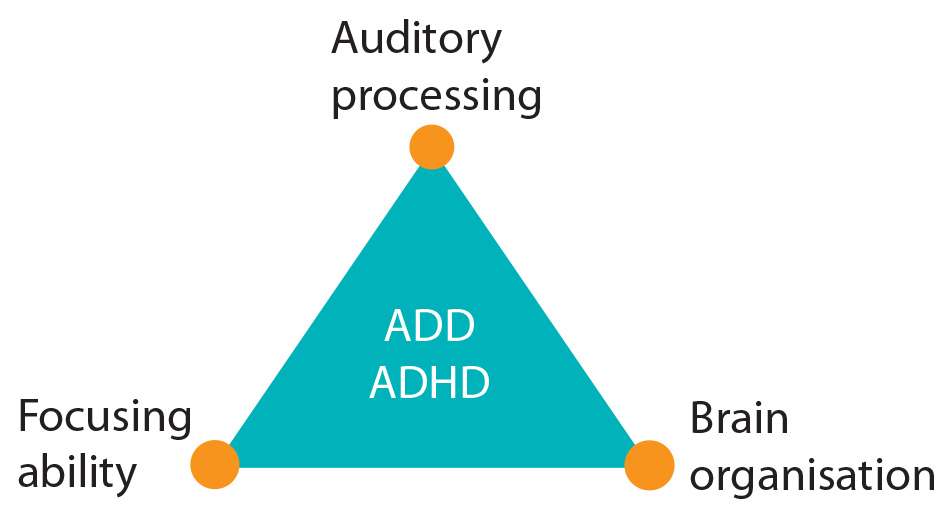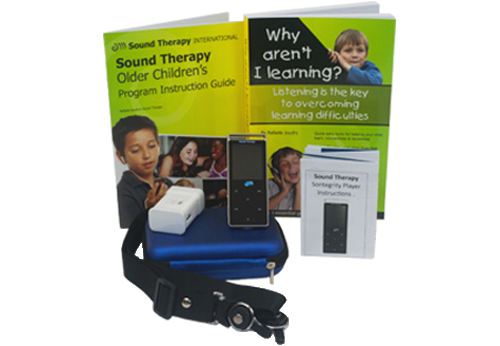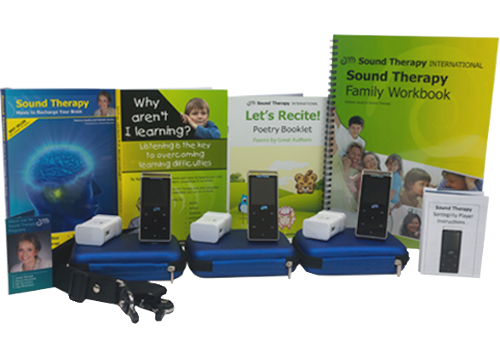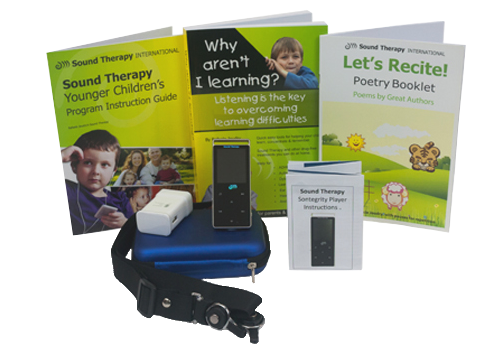Information sheet
- Home
- Information Sheets
- Attention Deficit Disorder & Sound Therapy
Article Summary
- ADD, or ADHD, is an attention difficulty caused by neurological process impairments.
- Children with this condition may be either hyperactive or dreamy. They often have difficulty with focus, sustained attention, motivation and follow through, impulse control, organisation and short term memory.
- This affects their social life as well as academic performance.
- Listening and auditory discrimination are often a significant factor in ADD.
- Sound Therapy activates the frontal lobe by retraining the auditory system, resulting in a variety of improvements: the mind is calmed, attention is sharpened, energy levels are balanced and concentration becomes easier.
- This can lead to better behaviour, more social engagement and improved academic skills.


The problem
Attention Deficit Disorder (ADD) or Attention Deficit and Hyperactivity Disorder (ADHD) is a neuro-processing problem which affects attention and learning ability. It is believed to be caused by a deficiency of the transmission system which relays messages between cells in various parts of the brain.
The majority of children with ADD/ADHD have auditory reception problems. Although they may be able to hear perfectly well, they have difficulty making sense of what they hear. They may be unable to tune out unwanted input in order to focus on selected sounds or to concentrate on a topic for any length of time.
Poor functioning of the frontal lobe can result in the child not being able to control the impulse to act. This impulsiveness and hyperactivity can lead to behavioural problems and poor social skills.


How Sound Therapy may help
By stimulating the frontal lobe, Sound Therapy may restore the child’s ability to think quickly and put the brakes on before acting. This can help with:
- Focus
- Listening ability
- Concentration
- Short term memory
- Impulse control.
By retraining the listening capacity Sound Therapy can help the child to focus on the desired sound. It then also helps to relay the sound directly to the language centre in the brain.
Auditory reception problems occur when the ear shuts down to certain frequencies of sound. The ear muscles then become lazy and unresponsive. These muscles must be stimulated so the ear can properly tune in to a desired sound. Sound Therapy has been shown to provide this rehabilitation for the ear and reorganise the auditory transmission in the brain. This reduces stress and tension in the whole nervous system, and the child becomes more able to attend to a chosen stimulus, instead of being constantly distracted by every sound in the environment.


How to use it
Regular listening to Sound Therapy is essential to receive successful results. The child should listen every day if possible for 30 to 60 minutes. Children can listen during sleep, homework or any quiet activity, such as while travelling in the car.
What it achieves
As listening discrimination is retrained, memory and concentration improve. Learning can then be achieved with a great deal less effort. Sleep and appetite problems are resolved as the whole system becomes calmer and less erratic. Behavioural difficulties such as impulsiveness and aggression are reduced to a manageable level. The child will be more able to pay attention in class, understand and follow instructions, and be motivated to communicate and learn.
Start Getting Relief Today
Click here to choose your package











